Origin of the Crisis Actor
A byproduct of the cold war strategy of tension still haunts us today.
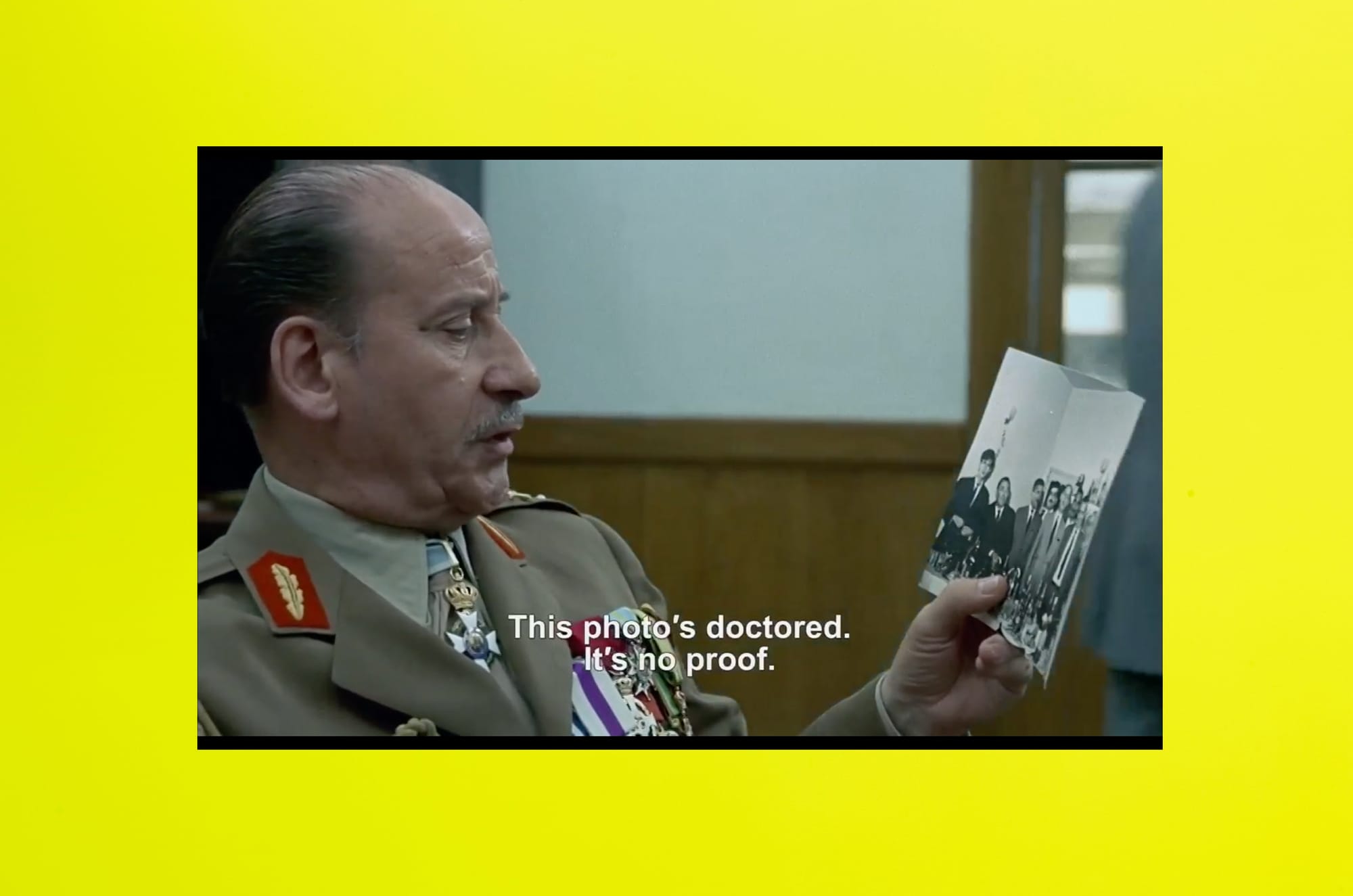
By Jak Ritger, June 2024 - commissioned by For, Art Space & Culture Magazine, Basel, Switzerland on the occasion of the exhibition "Crisis Actor" by Baker Wardlaw. Read issue No.7 Think Trust State Crisis with text contributions by Matthias Lemke, Celia Martín, Olga Reznikova, Jak Ritger.
The crisis actor emerges as the contemporary instance of an old character: the fake, the pretender set-up for attention. The characterization or “jacketing” of a victim of violence as a crisis actor is a necessary maneuver for the ideologue (far-right or otherwise). In order to preserve an ideological position one must dehumanize the person or persons that call into question that political ideology. The only alternative is to bear witness to the reality of one’s cognitive bias. In the U.S., extreme far-right supporters of gun ownership jacket the victims of school shootings as crisis actors in order to undermine the gruesome reality that children are gun death victims.[1] Left-Liberal supporters of the Democratic Party are quick to point out that Trump used paid actors to fill out his 2016 presidential campaign announcement crowd on June, 16, 2015.[2] Even after the astroturfed (fake grassroots) support gave way to massive enthusiastic rallies, his opponents still refused to acknowledge the reality of his support or believe he could win the election.
Choosing the story of the crisis actor blinds us and binds us to our ideology. It allows us to continue down a path of extreme belief unchallenged. When the ground-truth does not line up with one’s politics, the situation is altered in order to make it make sense. While many commentators have framed the impulse to delegitimize real victims as crisis actors and real events as fake news as the result of internet conspiracism, I see the character of the crisis actor as a byproduct of decades of clandestine operationalization of far-right groups by national powers and the ensuing propaganda cover-ups taking the form of the strategy of tension.
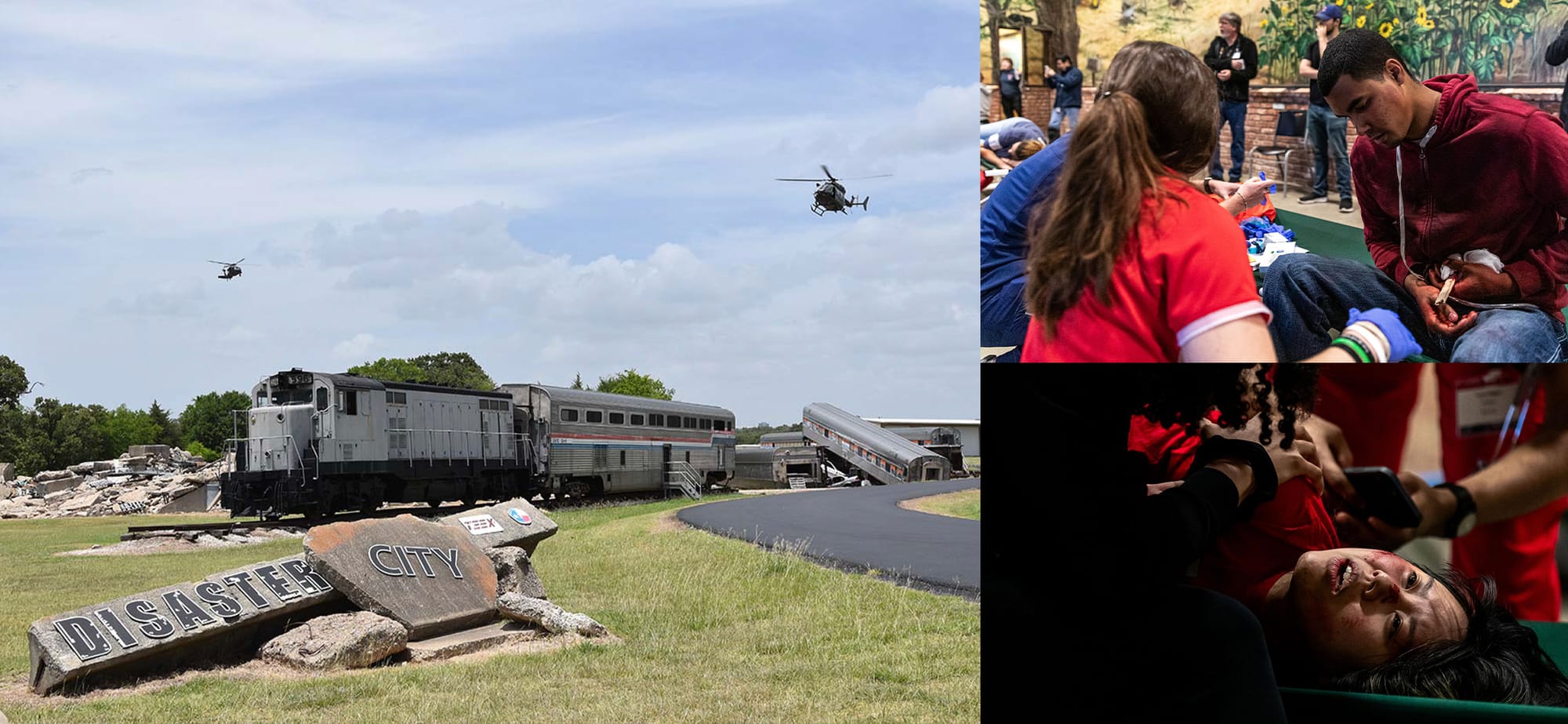
To understand how we ended up here, we must go back to the moment right after the Second World War. The political landscape in Europe was incredibly fraught. Countries tried to balance delicate economies under newly embedded democratic structures that struggled to function. The Western Union (which would later become N.A.T.O.) was tasked with resisting the encroachment of communist politics and prepare for a possible Soviet Union invasion. The democratic model is quite porous to penetration by popular social movements, especially in the post-war period under the banner of Freedomism. Anyone can run in an election as a socialist candidate and gain traction for communist support. A plan that was hatched by MI6 and CIA intelligence officers within the Western Union would have grave and lasting effects.
After the Allied Forces officially withdrew from occupied countries a secret network of intelligence agents remained. They were known as the stay-behind network and in Italy specifically as Operation Gladio or commonly, just Gladio. The stay-behind agents guarded weapon caches in case of Soviet Union invasion and worked with far-right paramilitary factions as they tortured and murdered communists. Although official statements refute stay-behind agents’ direct involvement with a series of Far-Right bombings in Italy, the 1969 Piazza Fontana bombing in Milan and the 1974 Piazza della Loggia bombing in Brescia, it has been confirmed that the agents knew about plans and did nothing to alert authorities.[3]
In addition to augmenting far-right political action, Gladio used psychological warfare to characterize communist parties in the region as dangerous outsiders, under foreign control and not able to solve domestic economic issues. State repression was carried out in the form of workplace discrimination against communists and election rule revision to try and keep communist parties off the ballot. Here are two campaign posters that illustrate how the psy-war played out:
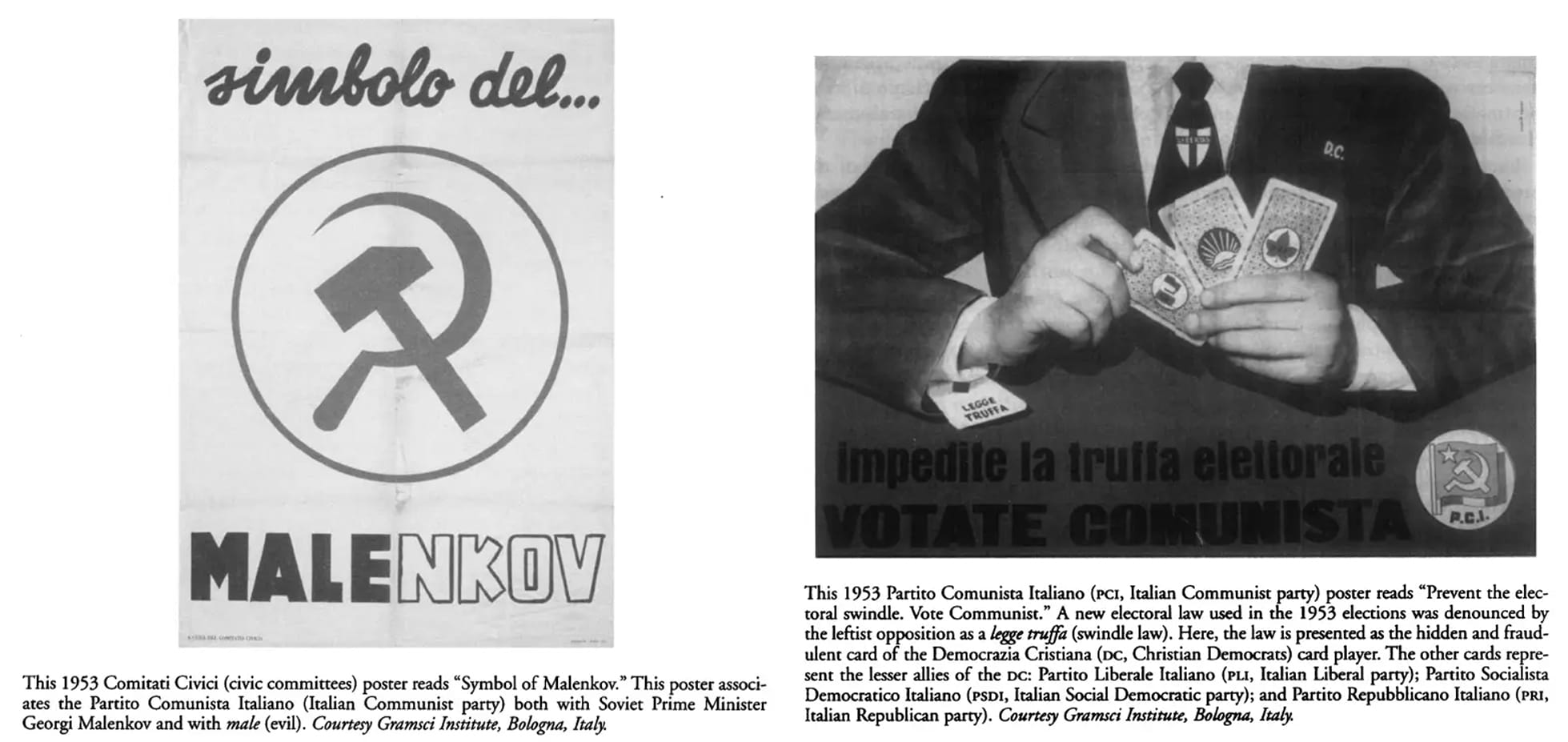
Political repression of the left and seemingly stochastic acts of terrorism from the right would rattle society and swell support for a strong centrist democratic police / military state. Left communism and far-right fascist ideology came to be seen as the engines of violence and only by exorcising these political sentiments from acceptable discourse could the society be made to be safe. This dynamic formed the basis for the strategy of tension.
In the early 90s, evidence was uncovered of stay-behind operations in many NATO countries including Belgium, Denmark, France, Germany, Greece, Netherlands, Norway, Portugal and Turkey. In addition, evidence was uncovered of parallel stay-behind operations in non-NATO countries including Austria, Finland, Spain, Sweden and Switzerland. The last on the list is a particularly controversial revelation. Projekt-26 or P-26 operated as a secret autonomous paramilitary of around 400 men with ties to British intelligence who provided training and guidance. By working with foreign military to carry out operations domestically, P-26 breached Switzerland’s neutrality policy. A shroud of opaqueness still surrounds the Swiss stay-behinds as the initial 1991 investigation, the Conru Report, was only made public in 2018 with heavy redactions.[5] In the wake of the 1991 revelations, the former commander of the Swiss stay-behind unit, Colonel Herbert Alboth was ready to come forward and “tell the whole truth” “as an insider” but he was murdered in his apartment with strange symbols written on his chest in felt pen that puzzled investigators. His death has never been resolved.[6] It would seem that the story of P-26 is a closely guarded secret that powerful entities are willing to pay a high price to keep.
There are two films that illustrate the impact of the stay-behind networks. After the story broke in the fall of 1991, a three part BBC docuseries: Gladio (The Ringmasters, The Puppeteers & The Foot Soldiers) aired in June 1992. This in-depth analysis by Allan Francovich gathers damning testimony from agents involved in the operation. The revelations of the Gladio documentary reframes the context of the incredibly influential 1969 film, Z directed by Costa-Gavras.
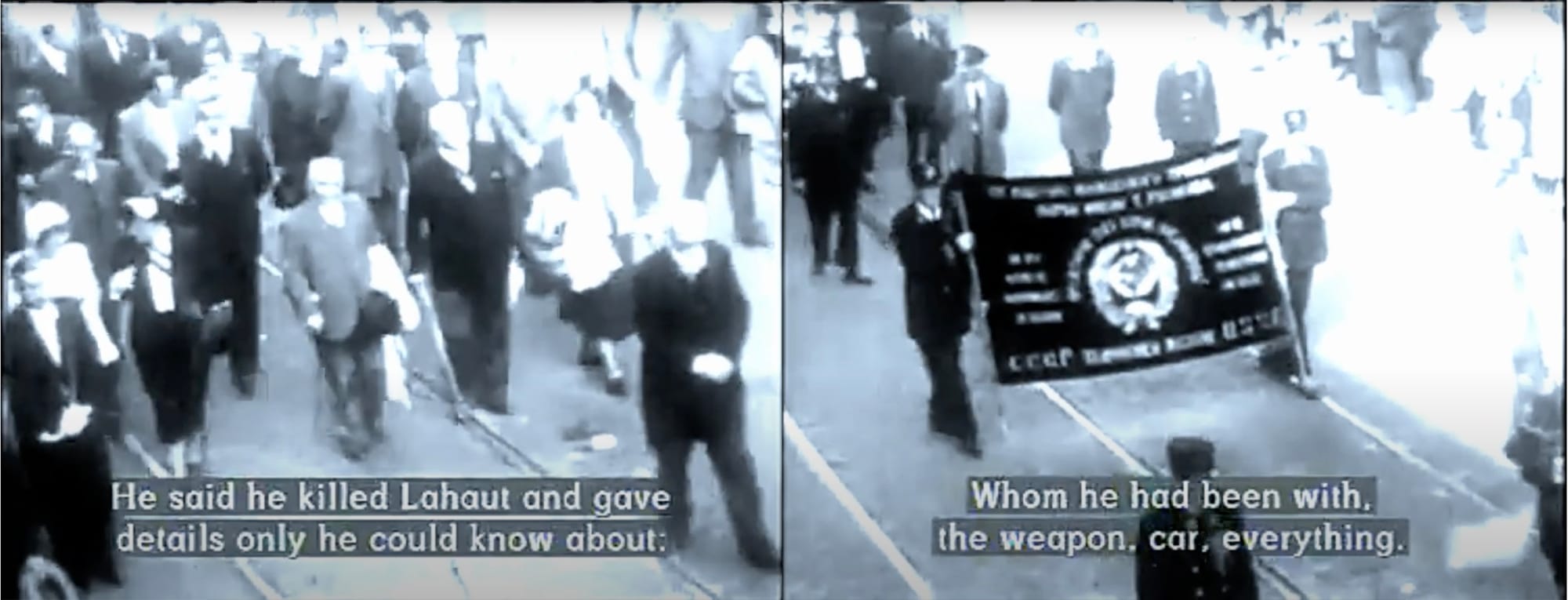
Z is a thinly-veiled dramatization of the events leading up to and the investigation following the assassination of Greek anti-war leftist leader, Grigoris Lambrakis in 1963. The murder was carried out after a widely attended political speech by members of a far-right group with secret ties to military and police leadership. Z shows how the assassination was covered up at the directive of The General, a police chief character based on Konstantinos Mitsou, “it was an accident by drunk drivers.” Later, when the conspiracy is unravelled and he is confronted with documentation of his far-right involvement he scoffs “this photo is doctored.” These subtle moments in Z powerfully illustrate the propaganda response from police & military powers that delegitimize the victims of far-right violence by undermining and revising evidence. The results of which would have long lasting impacts on society, as painfully depicted in the film’s final scene: the widow is given the hopeful news that her husband’s assassins are being charged with murder but she is unable to find solace after experiencing the extent to which the right-wing forces will use violence, intimidation and propaganda. Sure enough, soon after Lambrakis’s death, a military junta takes over the government and his killers are set free along with the conspirators.
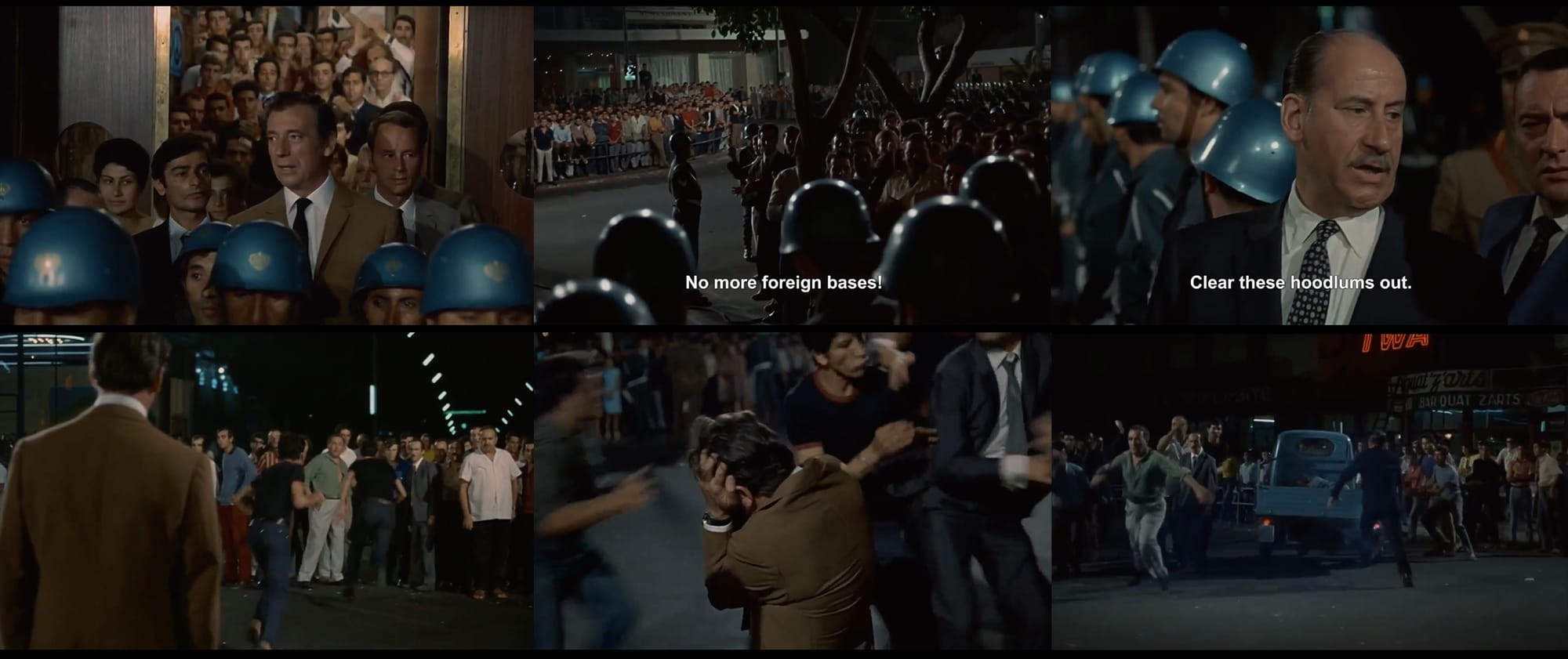
The Gladio investigations revealed that after Greece’s joining up with NATO its special forces (LOK) were integrated into the stay-behind network and instructed to prevent a left-wing coup in addition to prepare for an invasion from the Soviet Union. Although it remains unproven if stay-behind agents were directly involved in the assassination of Lambrakis, the tactics used (far-right paramilitary gangs carrying out violent repression of left leaders via clandestine orders from military higher-ups) and the propaganda response (cover-up actions, frame victims as proximate to or inciting violence) followed the same playbook of delegitimizing victims’ narratives. The ensuing political turmoil generated from the assassination lead to the coup in 1967 (mentioned above) which was in fact aided by LOK. In this way, we can see the practices of Gladio begin to be replicated in right-wing political machinery, a pattern that sadly persists today.[7]

The victims of this clandestine partisan violence are very real. Their deaths are evidence of a terrible strategy of repression through tension. The powerful demand that this evidence must be erased in order for the political body to be made whole again. Governance ceases to be democratic if the state is subverting its own political process through murder and intimidation. And so, a retreat to the center, towards the safety promised by strong military / police states is sought. The narrative erasure, cover-up or in today’s online vernacular gaslighting comes as a result of this retreat. It is the by-product necessitated by the strategy of tension and is expressed today by the extreme far-right as the charge of Crisis Actor.
Far-right commentators like Alex Jones are simply expressing the same sentiment espoused by the avatars of power in reaction to partisan violence, only his expression is extremely literal. Rather than simply attacking the credibility of a victim, the circumstances of their murder or the validity of evidence, Jones attempted to undermine the very nature of their personhood. By recasting the victims of violence as paid actors placed into a scene he is attempting to reprogram the way the tragic events are perceived by his followers. This overt form of perception management is extremely offensive to the families of victims who sued Jones and won $49 million in damages.
Sadly, the Jones court case is not indicative of any shift in political will or ability to stem the flow of stochastic violence and mass shootings in the U.S. Policy to restrict access the firearms is curtailed by entrenched lobby groups and political donors. Meanwhile, new research indicates that mass shootings and gun violence more broadly is related to economic hardship and unemployment.[8] In plain terms, as the U.S. capitalist system of rugged individualism dissolves more and more social programs and safety nets resulting in increases in violence which brings the populace back into further support police funding. The dual movement of the democratic military state may have found its roots in Cold War Gladio Operations but today it is running on autopilot. It’s a well oiled machine exporting destruction across the map while strengthening resolve inside the imperial core.

On a macro-scale, the strategy of tension has been employed to devastating results by Israel’s leadership in the past and currently by prime minister, Benjamin Netanyahu and his far-right government. Over the past decades Israel’s policy of buying quiet allowed millions in funding to enter embargoed Gaza from Qatar to fund Hamas. The desired effect was splitting governance between Hamas in Gaza and the secularists and leftists of the Palestine Liberation Organization and the Fatah party in the West Bank. The intended outcome of this strategy was to create tension between the separated areas and thus divide support for the Palestinian statehood movement.[10] Unfortunately this strategy of funding Hamas lead to the violence on October 7th which in turn justified Netanyahu’s plans of complete expulsion and take-over of Gaza by Israel. The October 7th attack came at a crucial moment for Netanyahu as public support was waning amid corruption trials and his unilateral suspension of judicial oversight. In the wake of the attack by Hamas, his government enacted military rule and began a brutal bombardment and ground invasion of Gaza killing upwards of 30 thousand civilians, women and children.
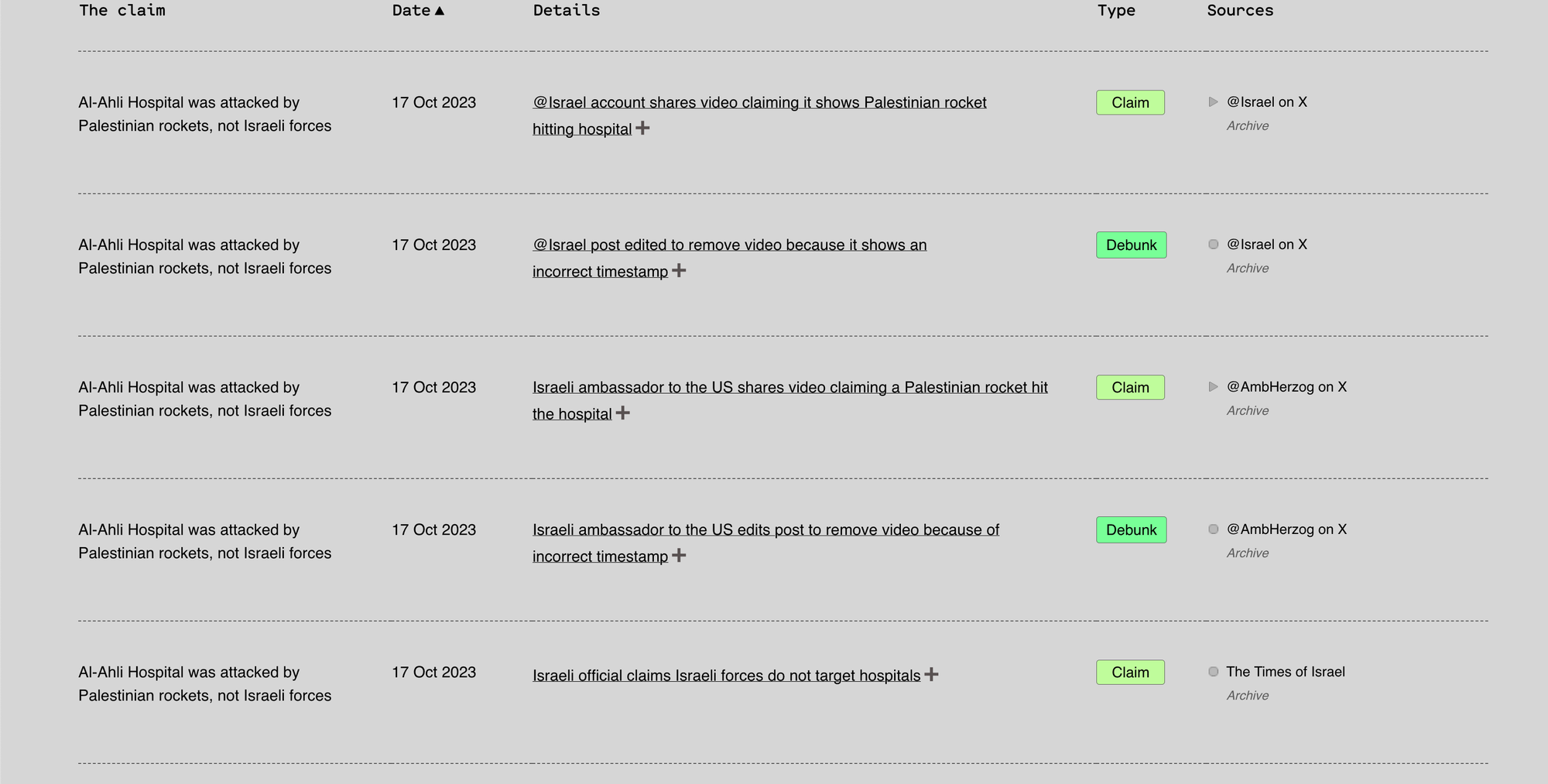
Over and over the official statements from Israel leadership as well as the crowd-sourced propaganda effort known as hasbara or explanation has followed a pattern of delegitimizing the evidence of death (referring to the Palestine Health Ministry as Hamas Health Ministry), shifting the circumstance of attack (human shields), denying the humanity and personhood of victims (referred to as cockroaches) and framing all media coming out of Gaza as fake news or Pallywood as in Hollywood. In the U.S. mainstream media coverage has adopted a passive voice and vague terminology when describing Israel's attacks on Gaza which avoids direct attribution or obfuscates circumstance.[12] Civilians die from “explosions” instead of bombs launched by Israel. In this way, rhetorical dehumanization creeps in.
On a micro-scale, the use of police shields and barricades to kettle protestors functions in a similar way. The kettle creates a tense environment that often spills over into agitation against the riot cops. The violent pushing by the protesters inside the kettle is then used to justify the violence being carried out by the police officers. A peaceful protest can be turned into a Black Bloc by use of this technique. The riot control equipment creates the visual expectation that a riot just happened or is about to erupt. The dynamic here is the inversion of the crisis actor; rather than peaceful victims becoming orchestrated stage performers, peaceful protesters are rendered as violent mobs using of the elements of staging and performance.
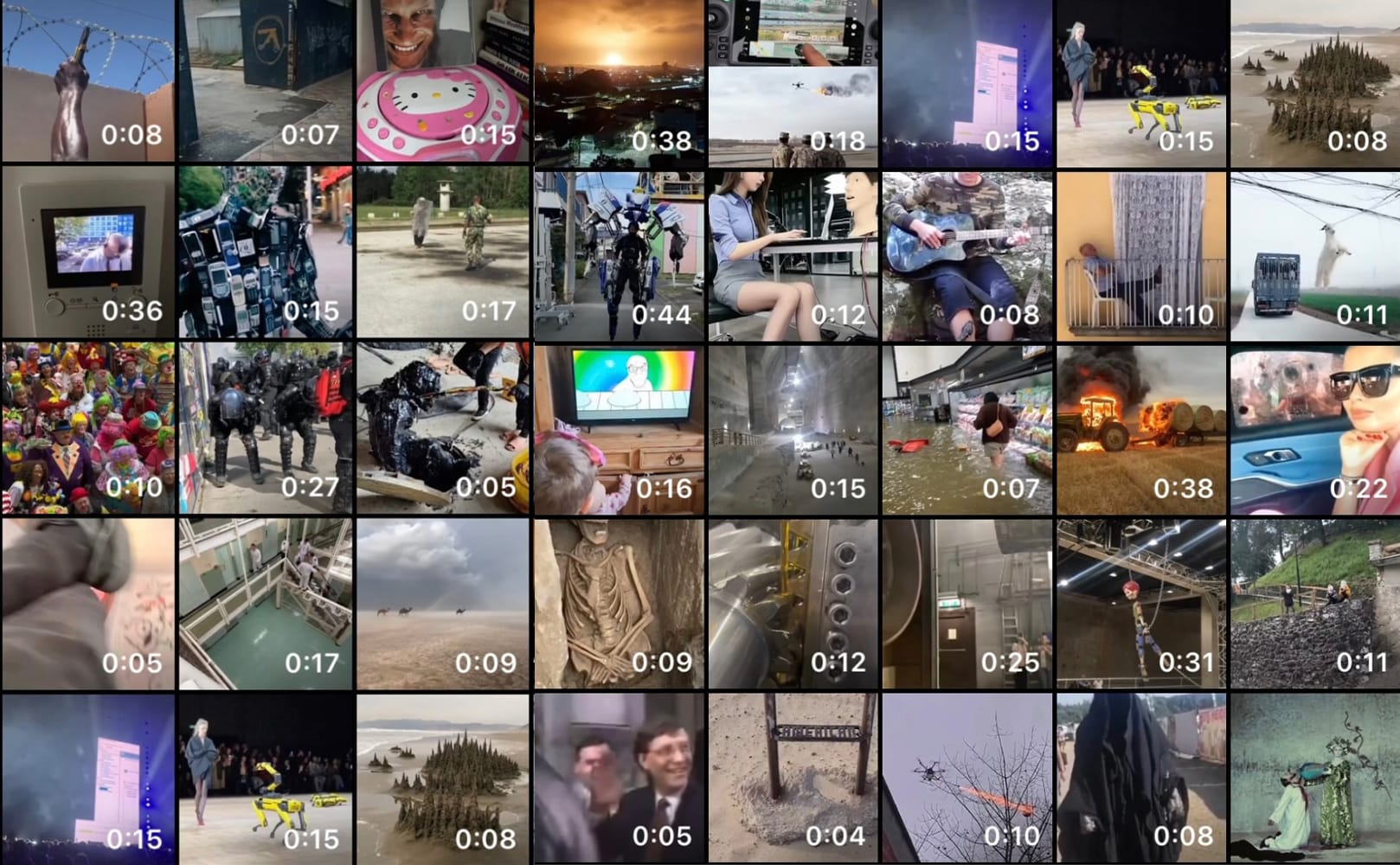
Throughout history the character of crisis actor appears during moments of extreme political instability and turmoil. The crisis actor is there to shift the narrative and cover over the dirty tricks carried out to protect power. As we enter a new media condition of massive social awareness, this technique begins to break down. The crisis actor starts to dissolve away as our ability to surface primary source testimony becomes immediate. But a sneaking sense of suspicion lingers. As handheld video circulates through social media at breakneck speed it loses context along the way. The Instagram account @crisis.acting collects evidence of this slippage daily finding a conspiracy jacketing each digital image.[13] The Gladio strategy of tension has become encoded into daily life — a cold war ghost undermining our trust in reality.
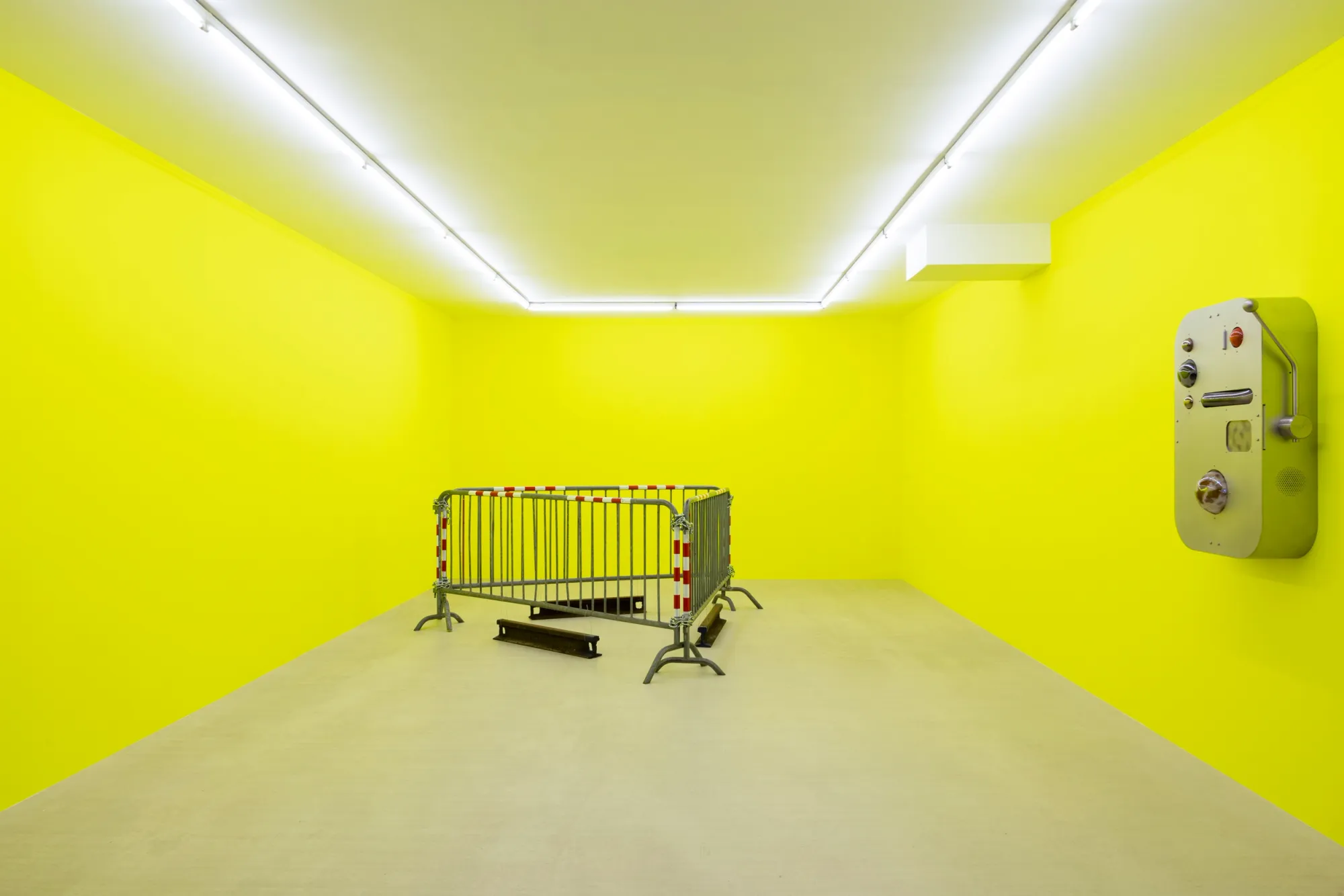
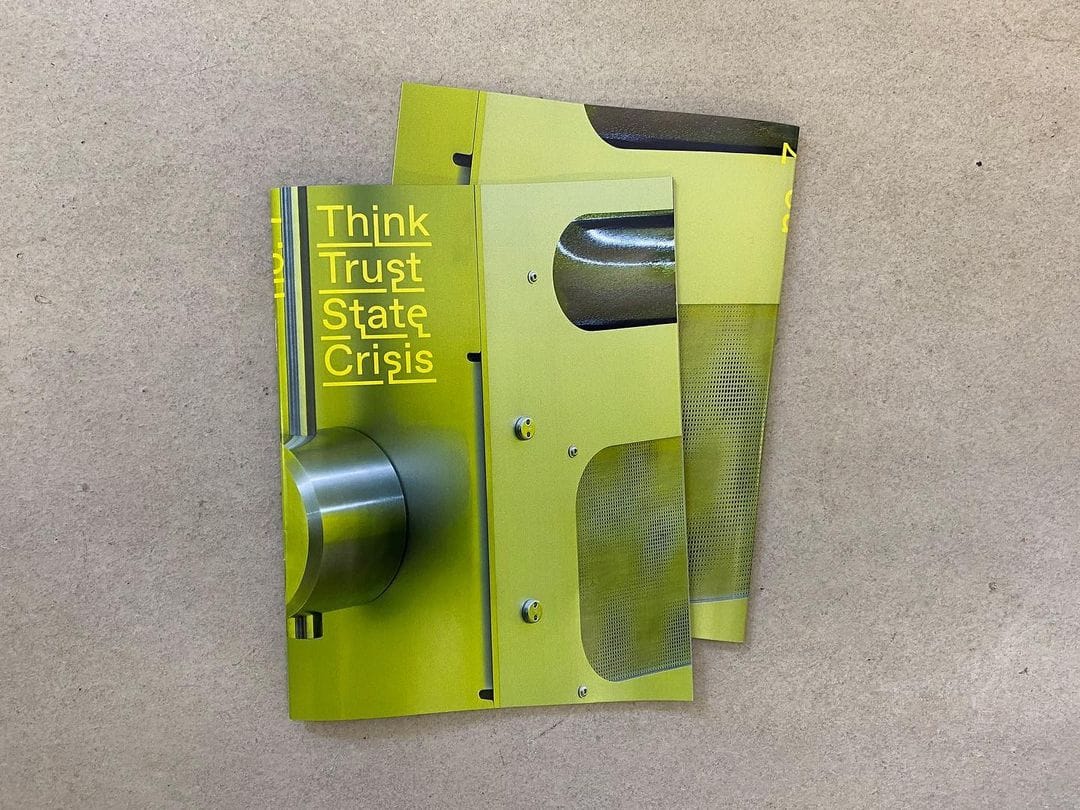

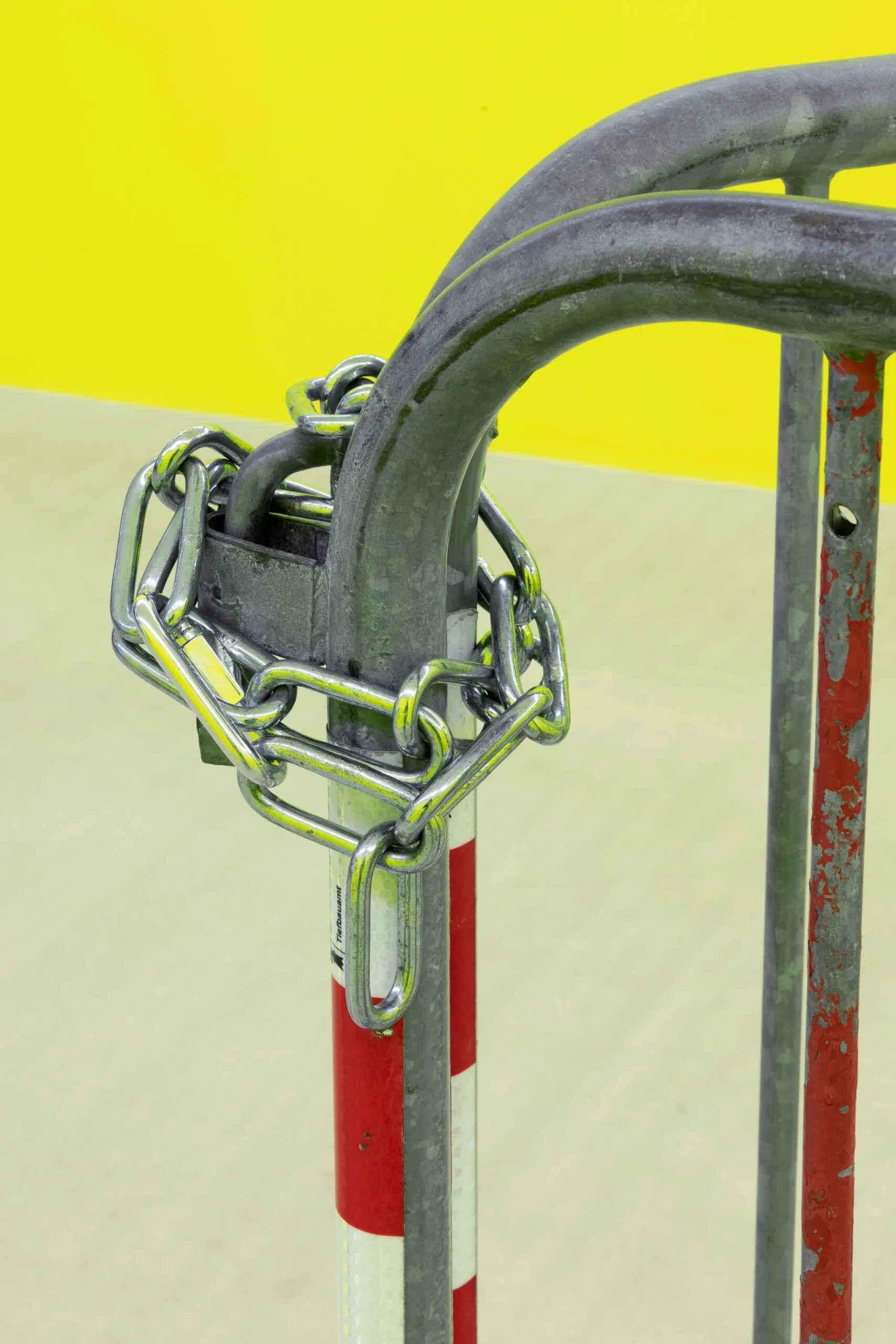
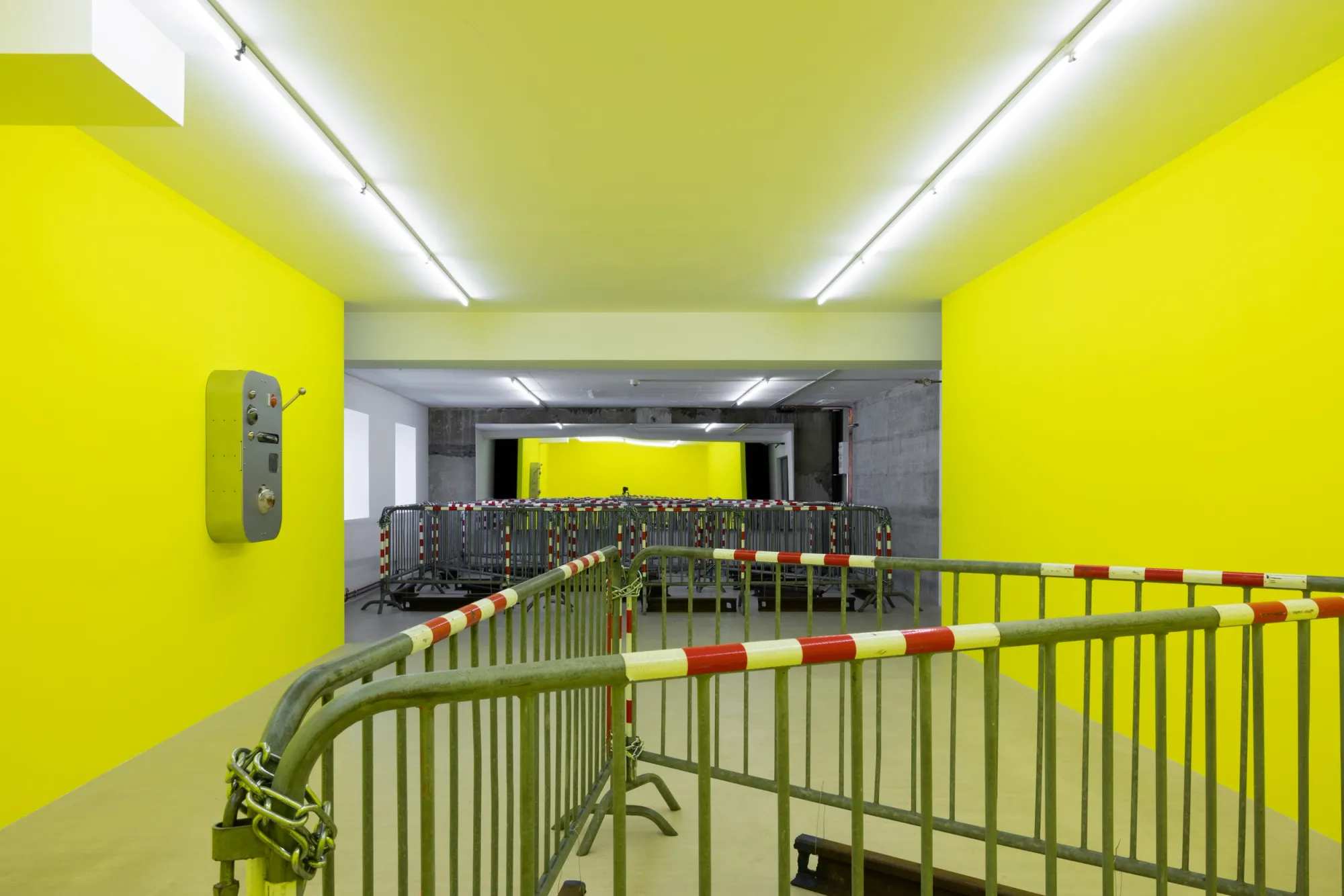
For Magazine No.7 Think Trust State Crisis + Installation view of "Crisis Actor" by Baker Wardlaw, 2024 - For, Basel
Bio for publication: Jak Ritger is an artist and theorist living in Boston and based in the Internet. In 2022 he participated in "The Influencing Machine", an exhibition at Ujazdowski Castle Centre in Warsaw, Poland that investigated Contemporary Art as a cipher for social programming in the information age. He publishes artwork, research and essays on Punctr.art.
Citations:
[1] Sommerfeldt, C. (2018, April 8). See it: Right-wing conspiracy theorist Alex Jones doubles down on “completely fake” Sandy Hook Massacre claims. New York Daily News. https://www.nydailynews.com/2016/11/18/see-it-right-wing-conspiracy-theorist-alex-jones-doubles-down-on-completely-fake-sandy-hook-massacre-claims/
[2] Oma Seddiq, A. W. (2021, July 19). Former Trump aide Corey Lewandowski says campaign paid actors to appear at his 2016 presidential announcement. Business Insider. https://www.businessinsider.com/trump-aide-says-paid-actors-for-2016-campaign-announcement-2021-7
[3] Editors, P. (2008, December 12). Secret warfare: Operation gladio and NATO’s stay-behind Armies Chronology. Parallel History Project on Cooperative Security (PHP) - NATO’s Secret Armies: Chronology. https://phpisn.ethz.ch/lory1.ethz.ch/collections/coll_gladio/chronology76c1.html?navinfo=15301
[4] Del Pero, Mario. “The United States and ‘Psychological Warfare’ in Italy, 1948-1955.” The Journal of American History 87, no. 4 (2001): 1304–34. https://doi.org/10.2307/2674730.
[5] Swiss Info. (2024, January 28). Details of secret cold war swiss army finally revealed. SWI swissinfo.ch. https://www.swissinfo.ch/eng/business/covert-ops_details-of-secret-cold-war-swiss-army-finally-revealed/44077164
[6] Ganser, D. (2005). The British Secret Service in neutral switzerland: An unfinished debate on NATO’s Cold War stay-behind Armies. Intelligence and National Security, 20(4), 553–580. https://doi.org/10.1080/02684520500425083
[7] Ganser, D. (2005a). NATO’s secret armies: Operation Gladio and terrorism in Western Europe. Frank Cass.
[8] Pah, A. R., Hagan, J., Jennings, A. L., Jain, A., Albrecht, K., Hockenberry, A. J., & Amaral, L. A. (2017). Economic insecurity and the rise in gun violence at US schools. Nature Human Behaviour, 1(2). https://doi.org/10.1038/s41562-016-0040
[9] Tooze, A. (2024, May 23). Chartbook 284 Gaza: “The decade after” - the surreal geoeconomic imaginary of Netanyahu’s “economic peace.” 284 Gaza: “the decade after” - the surreal geoeconomic imaginary of Netanyahu’s “economic peace.” https://adamtooze.substack.com/p/chartbook-284-gaza-the-decade-after
[10] Mehdi Hasan, D. S. (2024, January 9). Blowback: How israel went from helping create Hamas to bombing it. The Intercept. https://theintercept.com/2018/02/19/hamas-israel-palestine-conflict/
[11] Tracking Israeli propaganda. Hasbara Tracker. (2024, February 1). https://hasbaratracker.com/
[12] Middle East Eye. (2023, December 25). How language used by media outlets downplays Palestinian suffering. Middle East Eye. https://www.middleeasteye.net/news/war-gaza-how-media-language-manipulated-justify-killing-palestinians-and-used-dehumanise-them
[13] Crisis Acting. (n.d.). https://www.instagram.com/crisis.acting/
